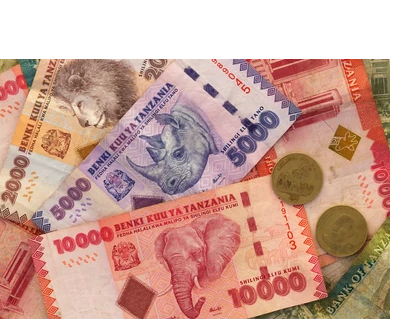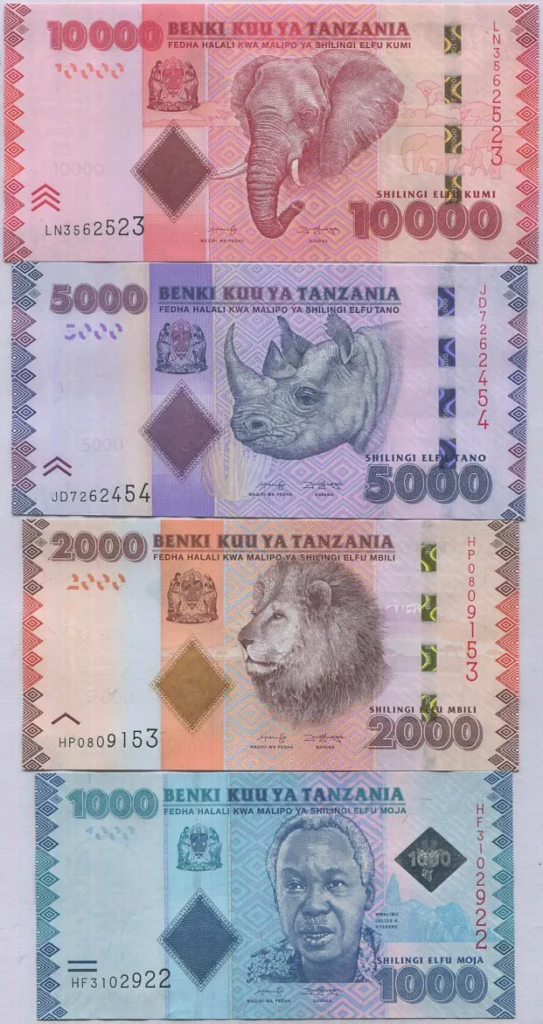
Navigating Currency in Tanzania: A Comprehensive Guide
Embarking on a journey to Tanzania and Zanzibar requires thorough research, especially when it comes to understanding the local currency and payment methods. In this insightful guide crafted by Resilience Expeditions experts, we unravel everything you need to know about money in Tanzania, covering the official currency, payment options, currency exchange, and a detailed exploration of Tanzanian banknotes.
Official Currency: Tanzanian Shilling
The official currency in Tanzania, also utilized in Zanzibar, is the Tanzanian shilling. Its international currency code is TZS, a crucial abbreviation when dealing with currency converters, exchange offices, and banks. Understanding that one Tanzanian shilling comprises 100 cents, though coins below 50 shillings are practically out of circulation, facilitates seamless transactions.
Paying with Cash: Tanzanian Shillings and US Dollars
Cash transactions in Tanzania are widespread, accepting both Tanzanian shillings and US dollars. While US dollars are widely recognized, it’s important to note that new banknotes issued after 2009 are preferable to avoid potential issues with older notes. For travelers, having a combination of Tanzanian shillings and US dollars ensures versatility in various transactions.
Non-Cash Payments: Bank Cards
In places frequented by tourists like hotels, tour operators, and national parks, non-cash payments through bank cards are accepted. However, it’s crucial to be mindful of the standard commission of 3.5% for such transactions. Informing your bank about your travel plans is a prudent step to prevent card blocks due to potential fraud suspicions.
Best Payment Practices: A Practical Recommendation
Resilience Expeditions recommends carrying bank cards upon arrival in Tanzania for safety but suggests keeping at least 25% of the travel budget in US dollars. Paying with US dollars where feasible is advisable, with Tanzanian shillings being more suitable for smaller purchases or in local markets. Exchanging a significant amount of dollars into local currency is discouraged due to unfavorable exchange rates.
Currency Exchange: Where and How
Currency exchange is best conducted at banks, available in every city. Tourists can also utilize exchange offices, but rates may vary, necessitating comparison with official rates. While small amounts can be exchanged at stores or restaurants, exchanging large sums on the street is discouraged for safety reasons.
Currency Restrictions and Declarations
Tanzanian legislation prohibits non-residents from importing or exporting Tanzanian shillings, with an exception for citizens of neighboring Kenya and Uganda. Travelers are urged to spend or exchange any remaining local currency before departing. Additionally, declaring amounts exceeding $10,000 in international currency upon arrival or departure is mandatory.
Banknotes and Coins: Recognizing Tanzanian Currency
The 2011 series banknotes, with denominations of 10,000, 5,000, 2,000, and 1,000 Tanzanian shillings, are currently in circulation. Recognizable features include vibrant colors, wildlife depictions, and notable figures like President Julius Nyerere. Coins, such as the 500-shilling coin with a buffalo motif, are often treated as intriguing souvenirs.

2. Tanzanian Shilling Coins (500, 200, 100, 50 denominations)

Local Prices: A Glimpse into Tanzanian Economy
Providing a glimpse into local prices, common purchases like water, beer, bananas, or meals in cafes are detailed. Tipping practices, often up to 10%, are recommended in restaurants, while hotels and guides have customary tipping norms. Caution is advised when dealing with persistent individuals offering assistance, as excessive tipping may attract more unwanted attention.
Conclusion: A Finely Balanced Financial Sojourn
Armed with knowledge about Tanzanian currency and payment methods, travelers can embark on a hassle-free adventure through the vibrant landscapes of Tanzania. Whether admiring wildlife or savoring local cuisine, understanding the nuances of currency ensures a secure and enriching experience. Resilience Expeditions invites you to navigate the financial realm confidently, making the most of your Tanzanian escapade.
3. Vibrant Tanzanian Markets – A snapshot of local commerce
4. Wildlife in Tanzanian Landscapes – Showcasing the diverse fauna that adorns the banknotes



